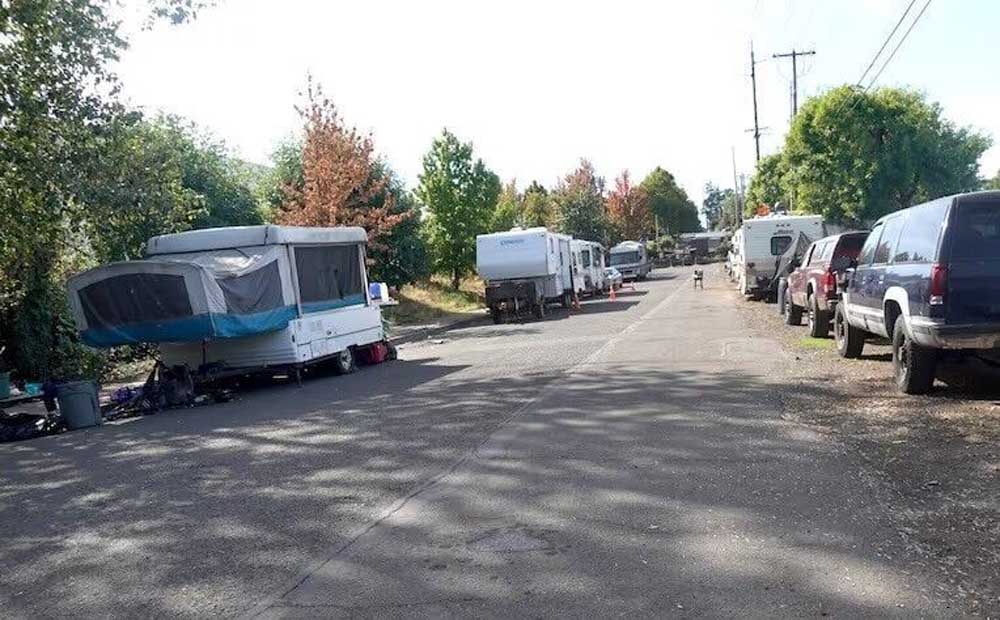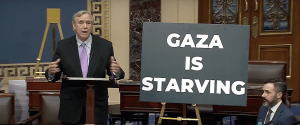Metro asked to delay homeless services reform ballot measure
Published 6:21 pm Wednesday, January 22, 2025

- Multiple vehicles are parked on Southeast Clackamas Road, the largest homeless encampment in Clackamas County, on Sept. 20, 2024. The local sheriff's office cleared the camp on Sept. 30
The council has been considering offering a reform measure at the May 2025 election. But the coalition asked the council to delay the measure to the November election n a letter sent on Jan. 22. The letter said the four-member coalition is still discussing potential changes, and wants until mid-April if necessary to make its recommendations.
Trending
“As you know, these separate sets of recommendations have some substantive differences, which is exactly why our four organizations have committed to working through them to finalize a package of recommendations that will have the broad support of our respective members and constituents,” the letter said.
The letter was signed by representatives of the HereTogether Coalition, the Portland Metro Chamber, the Coalition of Communities of Color, and the Welcome Home Coalition.
The 10-year SHS measure was approved by Metro voters in May 2020. It imposes a 1% tax on the incomes of upper income individuals and larger businesses to fund services to prevent homelessness and house the chronically homeless. Metro distributes the funds to Multnomah County, Washington County and Clackamas County. The counties mostly contract with nonprofit organizations for the services. None of the funds can be used to build or buy housing.
Trending
In the letter, the coalition said those issues it is still discussing include:
- Timeline: Extending the SHS tax for 30 years or making it permanent to ensure ongoing local funds to strengthen safety net support system for housing insecure residents.
- Tax Rate: No change in the marginal 1% tax rate, but increasing the income threshold of who qualifies to pay the tax by indexing to inflation to acknowledge impacts of rising costs of living.
- Flexible Use of Funds: Allowing funds to create more permanently affordable housing including purchasing existing privately owned housing, developing new affordable housing with a focus on permanent supportive housing units, and investments in more innovative social housing models that offer mixed income settings and expanding ability to leverage long-term rent assistance vouchers.
- Efficiency and accountability: Improving the implementation through regional standards and aligned contracting practices that focus on outcomes over outputs, improved working conditions and the retention of social service and housing professionals and utilize grant models over reimbursement practices. A new governance body with robust representation from those providing and receiving SHS services is also proposed.
“In order to solidify our coalition, we commit to sending you amended SHS program recommendations that will represent the unified voice of our organizations by mid April 2025,” the letter said.
Some of those potential recommendations are not significantly different than the ones presented by Metro President Lynn Peterson that the council has been discussing. Perhaps the most significant is keeping the tax rate at 1% instead of lowering it to 0.75%
The Metro Council held a work session on the proposal on Jan. 16. Members were clearly split, with some saying reforms are needed and others questioning whether voters will support any changes. All understood there is a regional need for more affordable housing, however. A follow-up discussion is scheduled for Jan. 23 and a public hearing will take place on Jan. 30.
At the time, Peterson said negotiations over the potential measure is ongoing between business and provider interests.
“We are dancing on the head of a pin. Things are very delicate at this moment,” Peterson said.
Since it was approved, the SHS measure has consistently raised far more money than originally estimated. The counties experienced problems spending their all of their shares in the early years. Metro has held discussions for more than a year about asking voters to replace the measure with one that does not expire as soon, lowers the collection of taxes, and that also support the construction of affordable housing.
The proposal has been opposed by the boards of the Multnomah, Washington and Clackamas county commissions because it would reduce their yearly allocations, even though they would receive money funds over the long haul.
“I appreciate Metro’s shared commitment to continuous improvement for the successful Supportive Housing Services program. Here in Washington County, the Supportive Housing Services program has helped over 1,200 people into housing, prevented over 4,400 evictions and provided over 1,800 people access to shelter in the first three years of the program. I remain concerned that the potential reform measure Metro Council is considering will necessitate dismantling the essential systems serving our most vulnerable community members and will prevent reaching goals outlined in the original voter-approved measure. Let’s pause, come together and ensure we don’t not move backwards in addressing the homelessness crisis in our region,” Washington County Chair Kathryn Harrington told the Portland Tribune.
In its Jan. 22 letter, the coalition said, “We do not make this request lightly. We have tremendous appreciation and respect for the leadership President Peterson and the Metro Council have demonstrated in convening what have been challenging but necessary conversations about the current state of the regional SHS program. Our organizations are aligned with your concern that we must take urgent action to secure the future of our regional SHS funding, which is the largest of its kind in the nation. We agree that there is a hardening public frustration with a lack of progress, whether perceived or real, in reducing homelessness in the region that has put the entire program at risk. And most importantly, we must do better serving the vulnerable community members that this program was designed to support.”







